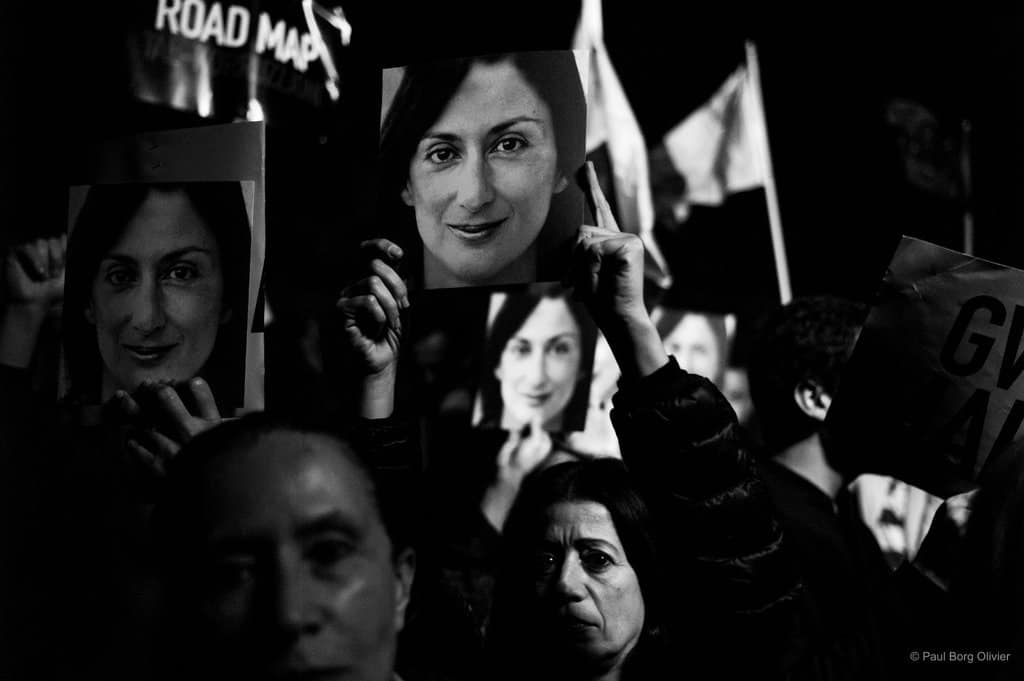
There’s mounting concern again that after the surge in November 2019 when Yorgen Fenech was arrested, the momentum on the shuffling feet of our state institutions in their attempt to get to the bottom of the truth in the case of the killing of Daphne Caruana Galizia is stalling again.
Some of this is no doubt perception. Or at least let’s allow for that possibility. With the courts down to urgent business only the compilation of evidence against Yorgen Fenech has stopped. The pre-trial hearings against the Degiorgio brothers and Vincent Muscat have also stopped as has the hearing of Melvyn Theuma’s testimony against them.
Hearings in the heaps of constitutional complaints filed by the accused are not being heard either.
And of course, the crucially important independent public inquiry that was being heard in the appeals court chamber in Valletta has also stopped for now.
These public processes are, at least from the public’s point of view, in part a process of discovery. We learn the truth – or at least the version of the truth presented by witnesses – as they speak it in open court.
If we thought everyone involved in this assassination was already in preventive custody, we’d patiently wait for the re-opening of the courts to learn for ourselves what the police already know.
But in as much as nobody felt like the arraignment of il-Fulu, il-Koħħu and iċ-Ċiniż was the last word in this criminal investigation, only the ones who are impatient to put this behind them are satisfied the matter ends with Yorgen Fenech.
International free speech NGOs this week called on the attorney general to seek the participation of Europol in a joint investigative team. It’s an eminently reasonable request.
After all one must recall that when Daphne’s husband and sons fought and won a court order to have Silvio Valletta removed from the investigation they thought they were pushing out a man conflicted because his wife was a government minister. They would eventually learn they were pushing out a chief murder investigator who was best buddies with the chief murder suspect.
It would later emerge that his boss, police chief Lawrence Cutajar, was also intervening in the investigation and it does not seem that he was helping them along to get to the bottom of things.
Knowing all this, whatever the commitment and professional hard work of the police inspectors doing the ground-work in this case, it is clear to one and all that they are subject to the interference of their bosses. Their resources are limited and their time is shared between this investigation and any other homicide that occurs in this country.
Even after all that’s happened it seems the state is unwilling to get serious about getting to the bottom of the question of who killed Daphne Caruana Galizia. And that’s likely to be because they have a fair suspicion what that answer could be.
Like any other reasonable request made by Daphne’s family or their supporters in the two and a half years since she was killed, once again the police dismissed the idea of a joint investigative team with Europol as if it was a redundant request. Because here, you see, the police reject any help from outside in case that gets them where they’d rather not go.
That maddening frustration of the twenty-month stasis that followed the rush of the arrest of the Degiorgios and Muscat is creeping up again.
Today news emerged that a former state prosecutor has left the AG’s office and is now on Yorgen Fenech’s defence team. He is even representing Yorgen Fenech in a constitutional case against his former boss, the attorney general.
I spoke to Charles Mercieca earlier today and he says that while he worked at the AG’s office he “was never involved either directly or indirectly in Yorgen Fenech’s case.” Right, so he has his bases covered.
But Dr Mercieca can perhaps forgive us our lingering concern about the fact that every day of his working life for the weeks and months since Daphne Caruana Galizia was killed and some sort of case was being built to convict her known assassins, he was closer to the prosecutor’s strategy than most of us ever could be.
He was trusted in the same room with the files. He was trusted in the same room where sensitive conversations were being held. He had the opportunity to closely observe the people who are trying to prosecute, within the limits of the resources available to them, the people suspected of this crime.
And now, poof, he works for their chief suspect.
Charles Mercieca will no doubt have reflected very closely on his position and ensured he himself would not be liable to be accused of any wrongdoing. He likely took care of himself. Though unless he minds very much perhaps it would make sense for the Chamber of Advocates to examine the incident under its code of ethics rules. After all, if he is indeed in possession of privileged information, the risk of him using it to support his new client is frankly unacceptable.
But this is not just about the lawyer who switched sides. God knows that happens. But this particular switch means the integrity of the state’s case against Yorgen Fenech has suffered another blow. Our confidence in our state’s ability to bring murderers to justice, such as it was, is now bruised even more.
Even allowing for the officials who want to get this job done properly, even if it was reasonable to hope that the culprits who have held them back and obstructed consciously and consistently the course of justice might be removed while the investigation goes on, there remains a nagging doubt that whether because it is unwilling or because it is unable, this country might never give justice to Daphne Caruana Galizia and her family.